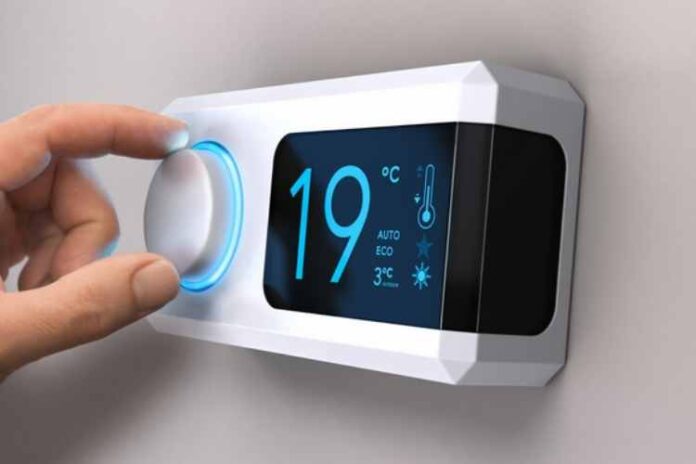It’s long been known that conserving energy is the optimal way to protect the environment. But most people don’t know how to go about saving energy at home.
Thankfully, it’s easier than you think. By making a few changes to your daily habits and your home itself, you can help to conserve energy for years to come.
If you’re interested in learning more about easy ways to save energy at home, keep reading. We’ll break down everything you should know below.
What Is Energy Conservation?
Energy conservation is the practice of reducing energy consumption. It can be achieved through a variety of methods, including energy-efficient appliances, insulation, and proper home and office design.
It can also be achieved by using less electricity, such as :
1. Unplug Unused Electronics
Many appliances, such as televisions, computers, and home office equipment, continue to use electricity even when they are turned off. This electricity is referred to as standby power and can account for 5 percent to 10 percent of a household’s total energy use.
To reduce standby power, simply unplug these appliances when they are not in use. Other ways to save energy at home include: turning off lights when you leave a room, using energy-efficient light bulbs, washing clothes in cold water, and line drying clothes instead of using a clothes dryer.
2. Use LED Lights
LED lights are more efficient than traditional incandescent bulbs, and they last much longer. The lifespan of an average LED light is 50,000 hours, so you can save money on your energy bill and on replacement bulbs.
LED lights are also cooler, so they can help reduce your air-conditioning costs in the summer. You can find LED lights for most fixtures in your home, including ceiling lights, lamps, and even holiday lights.
3. Use Natural Light
Natural light is a free resource that can help to reduce your energy costs. During the day, open blinds and curtains to allow sunlight to enter your home.
You can also take advantage of daylight by using mirrors to reflect light into dark corners. In addition to using natural light to reduce your energy costs, you can also help to save energy by closing blinds and curtains at night to prevent heat loss.
4. Plant Shade Trees in Your Garden
By doing this, you can reduce the amount of heat that your home absorbs during the hotter months, which in turn will help to keep your home cooler and reduce your energy consumption.
In addition, shading your home with trees can also help to reduce the amount of glare from the sun, making it more comfortable to spend time outdoors.
5. Upgrade Your HVAC System
A new, high-efficiency HVAC system can save you up to 30% on your energy bill, according to the Department of Energy. In addition, a new HVAC system will also help improve the quality of your indoor air.
You can also save energy by making sure that your HVAC system is properly maintained. This includes having it serviced regularly and changing the filters regularly. Visit this to learn more about all 10 benefits of going solar.
6. Buy Energy-Efficient Appliances
When looking for new appliances, always look for the Energy Star label. Energy Star appliances are required to meet certain efficiency standards set by the U.S.
Environmental Protection Agency and the U.S. Department of Energy. Buying Energy Star appliances can save you money in the long run by using less energy and, as a result, saving you money on your utility bills.
7. Manage Your Thermostat
You can do this by setting your thermostat to a comfortable temperature when you are home and raising it when you are away. This will help you save money on your energy bill and keep your home at a comfortable temperature.
You can also save energy by making sure your windows and doors are well insulated. This will help keep the heat in your home and prevent unwanted drafts.
Why We Should Conserve Energy?
Most of the energy we use every day comes from non-renewable sources, like oil and coal. These energy sources are becoming increasingly scarce and more expensive as a result. It is important to conserve energy in order to save money and protect our environment.
Burning these fossil fuels releases harmful pollutants into the air, which can cause respiratory problems, heart disease, and cancer. It also contributes to climate change, which is a major threat to our planet. Conserving energy is one of the most important things we can do to protect our health and our planet.
Benefits of Saving Energy
Energy conservation offers numerous benefits. It reduces dependence on imported oil, reduces greenhouse gas emissions, reduces air pollution and water pollution, and conserves resources. By using less energy, we reduce the demand for these resources, which conserves them for future generations.
Energy conservation also reduces the cost of energy bills and improves energy security. In addition, energy-efficient technologies often have other benefits, such as improving comfort, convenience, and safety.
Why It’s Important to Save Energy in Your Home
It is important to save energy in your home for many reasons. By doing so, you can save money, conserve resources, and protect the environment.
To save energy in your home, take simple steps such as turning off lights when you leave a room, unplugging appliances when you’re not using them, and making sure your home is properly insulated. Together, we can make a difference by saving energy.
If you enjoy this article, come back and poke around the rest of the blog. You’ll find plenty of great articles where you can learn, teach, and grow together.








